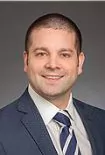As energy infrastructure is adapted to achieve greater energy efficiency and resiliency to combat threats from storms to terrorism, distributed generation (DG) has emerged as an opportunity for investors and developers who want to play a part in the modernization.
On November 5, 2015, Sullivan and Worcester and SEIA co-hosted a roundtable discussion to explore DG opportunities in the D.C., Maryland, Virginia and Delaware region. The panel was comprised of industry experts with diverse perspectives, and included Maryland PSC Commissioner Anne Hoskins, Dana Sleeper of MDV-SEIA, Anmol Vanamali of the DC Sustainable Energy Utility, Bracken Hendricks of Urban Ingenuity and Rick Moore of Washington Gas (WGL).
Mr. Hendrix explained that the panelist's approach to DG is a bit like the Indian proverb of group of blind men who, upon touching very different parts of an elephant, try to describe what they felt. They are all describing part of the same animal, but are only expressing what is within their grasp. The modernization of energy infrastructure in the mid-Atlantic is somewhat similar in that there are disparate parties in the form of private developers, utilities, regulators and consumers all contributing to developments on the ground.
Supporting Bracken's proposition, the panelists each described their view on the future of DG in the region. Mr. Moore of Washington Gas provided his perspective that "DG is in WGL's DNA," suggesting that DG sources are simply viewed as part of the generation mix at WGL, an increasingly common approach among utilities. Ms. Sleeper and Mr. Hendrix explained the industry's position that Property Accessed Clean Energy (PACE) financing provides opportunities for property owners to take control of their ability to "go solar" and support DG. Mr. Vanamali added that policy goals should reflect the notion that the transition to a DG smart-grid should not leave behind the low-income community and create DG technology "deserts."
As the market comes to grasp with DG, Commissioner Hoskins noted that although Maryland has not opened a "grid of the future" docket, the consequences of DG are being discussed currently throughout various proceedings all over the country. If the viewpoints of diverse grid participants are going to be heard and considered, greater participation in Commission dockets is needed and would improve the outcome.
A brief excerpt of the event can be found here.
The content of this article is intended to provide a general guide to the subject matter. Specialist advice should be sought about your specific circumstances.

